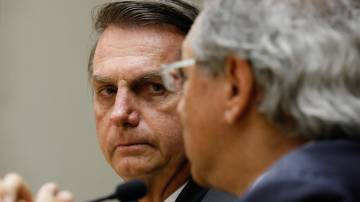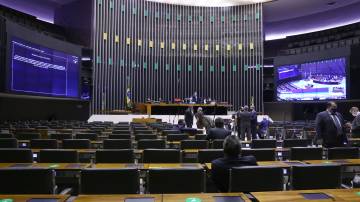Eletrobras bill: There are no fixed games
Importante: os comentários e opiniões contidos neste texto são responsabilidade do autor e não necessariamente refletem a opinião do InfoMoney ou de seus controladores
Erich Decat / Brasília
In the next days, the members of the Brazilian Lower House will start the discussion over a government proposal that establishes the main standards for privatising Eletrobras, the major government-owned electricity utility company.
In accordance with a previous agreement reached by the leaders of all the parties, every parliamentary committee will be dominated by members of the ruling coalition. Therefore, 25 of the 35 members of the Electrobras privatisation committee will be chosen by the governing parties.
Besides controlling the committees, the government has another trump card to minimise the chances of a setback in the special committees.
According to the Lower House internal rules, the leaders of the ruling parties can remove any lawmaker from a committee who has a change of heart in the middle of a discussion and stops tugging the party line. This tactic is used whenever the current coalition faces a deadlock on a proposal.
With these strategic tools (a majority and possible member changes) available, approving the privatisation bill should be a piece of cake.
However, in Brazilian politics, there are no fixed games. An example of this was demonstrated last Tuesday when the coalition leaders failed to form the privatisation committee. The most interesting detail behind the failure was that it was led by Nelson Marquezelli (PTB), a lawmaker member of the ruling coalition tasked with forming the committee.
In short, as interim chairman, he agreed with the opposition’s arguments that the committee couldn’t start its work before the members of the other Lower House committees are chosen.
After the decision, a leading figure in Marquezelli’s party said, “Of course we are allies of the government but sometimes we have to stab it in the back”.
This can seem weird but it’s how the Brazilian Lower House works. Bear in mind that we are in an election year, in which most of the lawmakers will try to be re-elected. Normally, in these periods, independently of the proposal content, the negotiations between the Government and the Congress can be tough and in exchange for a vote for a government proposal, some lawmakers will pressure the Government to increase the pork barrel.
Old Frank
Parallel to this common behaviour, the bill has also been facing huge resistance from some northern and northeastern lawmakers. We can add to this group some from Minas Gerais state too.
Their main worry is about the future of the São Fransico River. With a length of 2,914 km , “Old Frank” runs through some southern states, such as Minas Gerais, and some northeastern ones, such as Bahia, Pernambuco, Alagoas and Sergipe. The size of the river means that it is one of the principal sources of energy for Eletrobras.
The government’s main idea for defusing the resistance of this congressmen group is to invest part of the money earned from the privatisation in projects aimed at revitalising the river.
Public Hearing
Another source of problems is that most of the Lower House members only have a superficial idea of the content of the bill.
With this in mind, the heads of the privatisation committee intend to organise public hearings during the whole month of March.
As we can see, the government has the tools to push the proposal through but the game is only beginning.
Proofread by Akos Gerold











